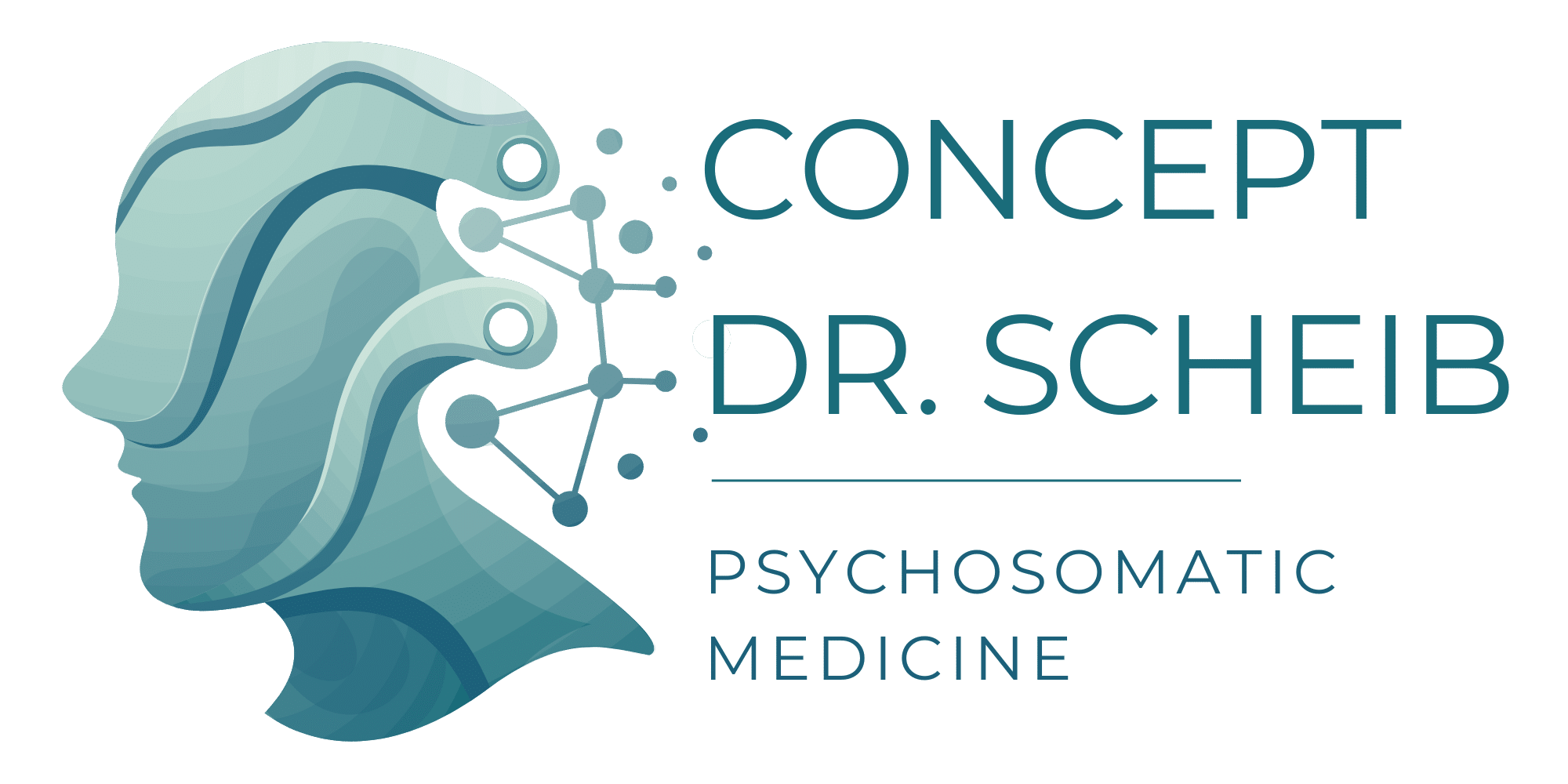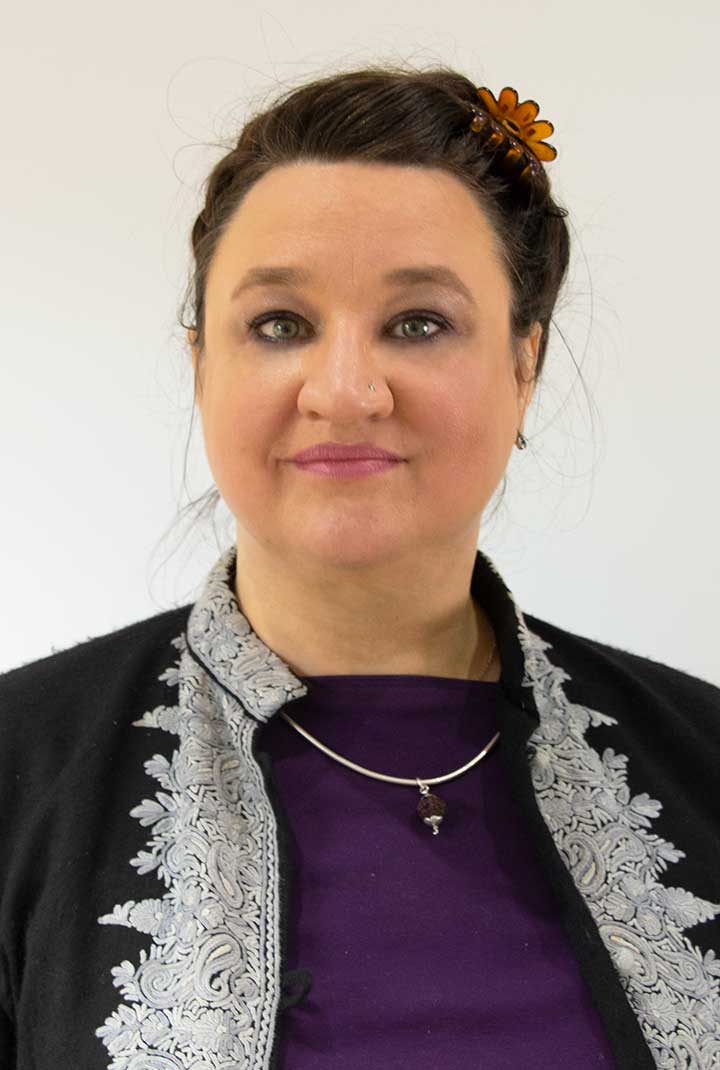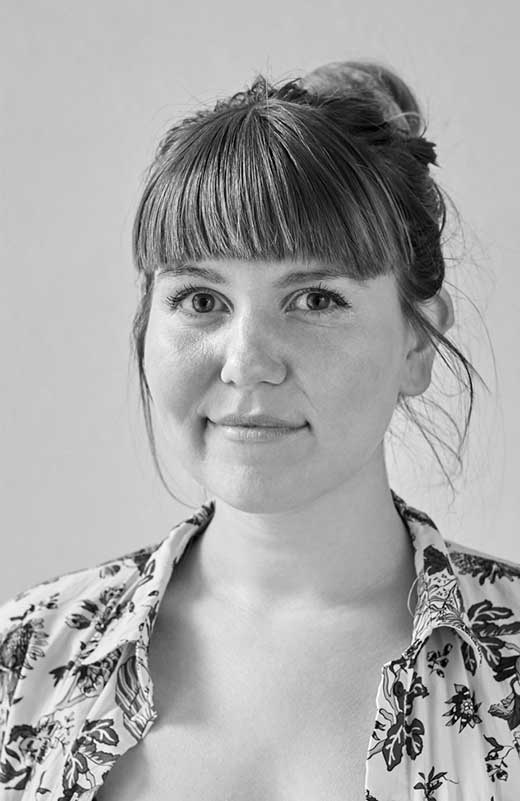Ketamine treatment
Ketamine therapy for depression, long covid, PTSD, addictive disorders, trauma, obsessive-compulsive disorder and anxiety disorders
Ketamine infusion treatment has been used very successfully in the treatment of depression for several years now. There a many scientific and medical studies that confirm the effectiveness of Ketamines in the treatment of psychosomatic pathologies.
Ketamine, originally an anesthetic, is effective even in treating the symptoms of treatment-resistant depression. Ketamine treatment can also be used for postpartum depression because of its rapid metabolisation. Other conditions where ketamine treatment shows good results are post-traumatic stress disorder (PTSD) and obsessive-compulsive disorder (OCD). In studies we have been conducting lately in ur practice in Munich, we found that ketamine infusions delivered good results in combating chronic fatigue and other symptoms of the long covid syndrome. Instituto Dr. Scheib in Mallorca and Andalusia, specialize in a unique combination of ketamine therapy with other therapies, achieving rapid and long-term success.
What effect does ketamine have?
Ketamine improves neuroplasticity, which means that the brain becomes more efficient and new neuronal connections can be formed.
Ketamine, unlike other antidepressants, has an immediate effect. The effect usually occurs during the first infusion and usually reaches its highest level of effectiveness the following day. The effect lasts for varying lengths of time: From a few days, to weeks, to months or years. Permanent medication (for example antidepressants) is often no longer necessary after ketamine therapy.
The combination of ketamine infusions with other procedures, such as psychotherapy, hypnosis or magnetic stimulation (rTMS), enhances the effect of ketamine. Especially for patients with severe depression who have had many futile attempts at therapy with a wide variety of antidepressants, our ketamine therapy can bring a breakthrough. Suicidal thoughts often disappear after the first ketamine infusion. Ketamine is currently the only known substance that has this effect. However, several infusions are usually required to make the therapy effective in the longer term.
The mode of action of ketamine against depression and suicidal thoughts is not yet fully understood. Ketamine acts at the NMDA receptor. However, the effect lasts much longer than the substance remains in the body. After a few hours, the Ketamine itself is already excreted. Therefore, ketamine treatment is an option for women who suffer from postnatal depression, even for nursing mothers.
Even though the ketamines are no longer detectable in the body, the positive effect still remains.
In which cases does Ketamine treatment work?
Ketamin treatment for depression
The use of ketamine treatment for depression is the most commonly known use for Ketamine in medicine. It does not matter whether the depression is endogenous or reactive. Ketamine can also be used in manic-depressive disorders during the depressive phase. In combination with rTMS and hypnosis and/or psychotherapy, we achieve improvement in 80 to 90% of our patients.

Ketamine treatment for long covid syndrome
We extend rtMS treatment for Long Covid Syndrome in parallel with ketamine infusions, which stimulates brain plasticity, the brain’s capacity to build new and functional connectivity. rTMS synergistically enhances the effect of ketamine therapy and provides a more sustained improvement in Long Covid symptoms. Our treatments are scientifically monitored.
Ketamine treatment for chronic pain
Ketamine treatment also has a positive effect on chronic pain. Many patients with chronic pain are also suffering from depression. Patients with fibromyalgia in particular benefit from ketamine infusion treatment. Both hypnosis and rTMS are also used in pain therapy. The procedures complement each other perfectly.


Ketamin therapy for obsessive-compulsive disorder (OCD)
Compulsions, such as obsessive acts or obsessive thoughts, usually improve significantly under ketamine treatment. Especially important in the treatment of obsessive-compulsive disorder is a combination of ketamine infusions with hypnosis and intensive psychotherapy. Depending on the type of compulsion, a combination with exposure training in virtual reality may also be considered.
Ketamine infusions for post-traumatic stress disorder
Under certain conditions, patients suffering from post-traumatic stress disorder can also benefit from ketamine therapy. In this case, however, integration into a psychotherapeutic setting is always necessary. We combine infusion therapy with EMDR, a psychotherapy method specially developed for the treatment of PTSD. Additionally hypnosis, neurofeedback, rTMS and exposure training in virtual reality is applied if indicated.
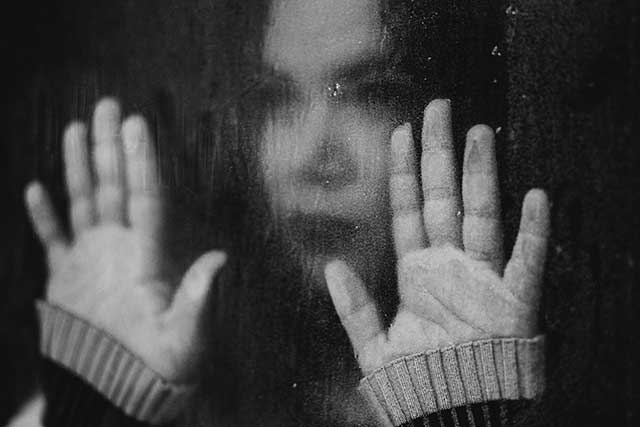
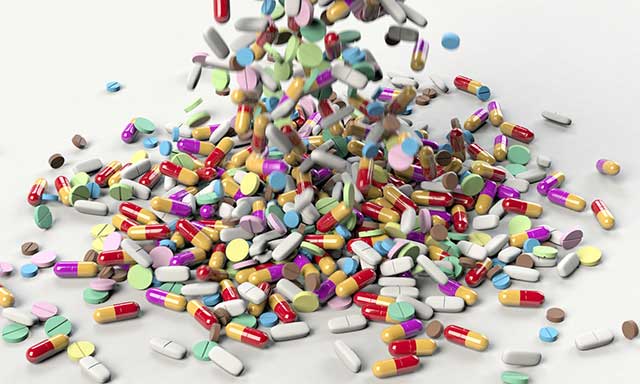
Ketamin treatment for dependance and addiction
In the context of addictive disorders and substance dependence, treatment with ketamine infusions in combination with behavioral therapy and/or hypnosis can overwrite the addiction memory. Recent studies confirm this, especially for the treatment of alcohol dependence. However, the use of Ketamine treatment may also be indicated for other substance abuse, such as cocaine, as well as for non-substance addictions such as gambling addiction, always in combination with psychotherapy and, if necessary, additional rTMS.
Ketamine infusions for anxiety disorder
For some form of anxiety disorder, ketamine infusion therapy in combination with psychotherapy and hypnosis can lead to rapid and significant improvement.
This usually involves several ketamine infusions at intervals of one or a few days, together with hypnotherapeutic support. Further medication treatment is usually not necessary.


Ketamin treatment for eating disorders
In certain cases, application of Ketamine therapy for eating disorders is also possible. Here, too, a combination with psychotherapy is an indispensable prerequisite.
Ketamine therapy for Burnout
Burnout is a state of emotional exhaustion, depersonalization and increasing professional inefficiency. Burnout is often confused with depression and many people with burnout syndrome also show clear symptoms of depression. Ketamine therapy can be an effective treatment for burnout syndrome.
Take our burnout self-test to determine if you are suffering from or at risk of burnout!

Is ketamine treatment safe?
Ketamine treatment is well tolerated. Nevertheless, there are certain conditions that limit its use:
Patients suffering from hallucinations in the context of psychosis should not be treated with ketamine, as psychotic symptoms may be intensified.
Ketamine causes a slight increase in blood pressure and intraocular pressure. Therefore, patients with high blood pressure or glaucoma must first be adjusted to normal, or at most slightly elevated, blood pressure levels.
Patients with coronary artery disease should also refrain from ketamine infusions. In milder forms of CHD, ketamine infusion therapy can be given under special supervision after consultation with the treating internist or cardiologist.
Therapy planning
Ketamine therapy always begins with a detailed preliminary consultation. During this evaluation, we get an idea of your personal situation. The results of previous treatment attempts, your medication intake and any existing or previous illnesses are also important.
The detailed medical history is supplemented by psychological test diagnostics and a quantitative EEG, which provides information about brain function. In addition, there is a medical examination with blood pressure measurement, possibly also ECG and HRV measurement. Depending on the symptoms, a mobile sleep laboratory can also be set up.
Unlike many other clinics, we always offer ketamine infusions in combination with complementary procedures, like hipnosis, rTMS, psychotherapy and neuromodulation. Which additional procedures are used in your personal therapy depends on the pathology and the current findings. Our goal is to ensure the long-term success of your therapy.
How does Ketamine infusion work?
Ketamine therapy can take place on an outpatient or inpatient basis. This depends on the patient’s personal circumstances. During the ketamine infusion, which lasts about 40 minutes, the patient lies relaxed on a couch or bed. The ketamine is administered slowly and in small amounts through a venous cannula as an infusion solution. Your therapist will supervise you throughout, so that the infusion can be adjusted to your personal needs at any time.
During the infusion, the feeling of a slight intoxication is possible, similar to that after increased alcohol consumption. You may suddenly remember events that had been forgotten. Dreaming or mild hallucinations are also possible. Should you feel unwell or should unpleasant feelings arise, these can be immediately curbed by reducing the speed of the infusion.
How long does Ketamine treatment last?
For some patients, a single ketamine infusion is sufficient to achieve a lasting effect. As a rule, however, we administer three to a maximum of eight infusions, each at intervals of one or two days. The accompanying therapy procedures also take place during this time. For an intensive therapy, we recommend a stay at our clinic in Mallorca. Outpatient treatment is also possible, which is effective as a primary treatment or can be used as follow-up treatments after a stay in our clinic. Depending on the pathology and the severity of the impairments, as well as the therapy modules used, patients can usually leave the clinic after about 10 days to two weeks of intensive therapy. The treatment with out-patient programs may take longer.
At the end of any treatment, a final interview and a new psychological test take place.
At this time, together with the patient, we determine whether and how any further treatment can or must take place. There is always the possibility of returning to our clinic in Mallorca for short stays after weeks or months as part of a fractionated therapy in order to keep the success of the treatment stable. However, most of our patients are still stable years after the therapy, so that further treatment usually is not necessary.
Complementary therapies
Hypnosis
Ketamine improves neuroplasticity, which means that the brain becomes more efficient and new neuronal connections can be formed. This is the ideal condition for intensive psychotherapy.
When combining ketamine therapy with hypnosis (our unique ketamine-hypnosis-treatment), first a preliminary evaluation with the hypnotherapist takes place, who then accompanies the infusion and continues the therapeutic process even after the infusion has ended. A special focus is on the integration of the extraordinary experience. One should estimate two to three hours for such a treatment.

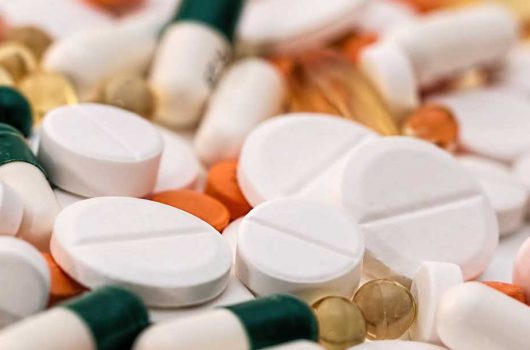
Behavioral Therapy: Addiction & Anxiety Disorders
In the treatment of addictive disorders, the improved learning ability of the brain through the ketamine is used to overwrite the addiction memory or also to induce confrontations with anxiety-ridden situations – sometimes in virtual reality. We usually work with a double session of behavioural therapy per day.
EMDR: Trauma & addictive disorders
EMDR is a procedure that is used especially in the treatment of post-traumatic stress disorder and in addictive disorders. In a safe setting, patients are asked to recall specific situations, the emotional content of which can then be changed by rapid eye movements. The method has an excellent scientific basis and is considered a standard procedure in the treatment of post-traumatic stress disorders. Significant improvements usually occur after just a few sessions. EMDR is nowadays also used to treat addictive disorders, depression and anxiety disorders. In this procedure, too, the improved neuroplasticity due to ketamine leads to benefits.

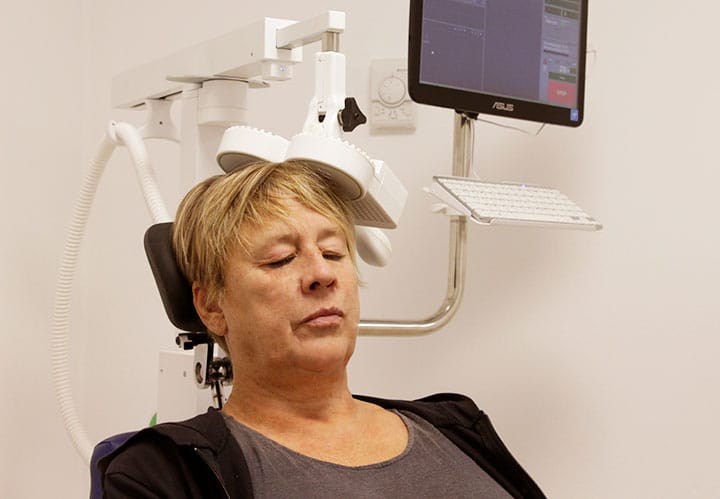
Magnetic stimulation (rTMS): depression & severe compulsions
In repetitive transcranial magnetic stimulation (rTMS), the activity of dysfunctionally working brain areas is stimulated or attenuated by strong, pulsating magnetic fields. It is explicitly stated as a therapy option in medical guidelines in Germany and the USA. Neuroplasticity is also improved in this process, so that the combination with psychotherapy is appropriate. The combination with ketamine infusions can bring additional benefits in cases of severe depression and compulsions, as well as in addictive disorders.
All procedures that may be used in our therapies
- Ketamine infusions
- Ketamine hypnotherapy psychotherapy
- Hypnosis / Hypnotherapy
- Behavioral therapy, also in virtual reality
- EMDR (Eye movement desensitization and reprocessing) trauma therapy
- Psychodynamic psychotherapy
- Neurofeedback
- HRV biofeedback and peripheral biofeedback
- Repetitive transcranial magnetic stimulation (rTMS)
- Transcranial direct current stimulation (tDCS)
- Autogenic training, progressive muscle relaxation, yoga
Sports therapy
If our patients are already undergoing psychotherapy, we discuss their progress with their therapists.
Not all therapies can be offered at all of our locations at the moment. Contact us for further information
Make an appointment for a psychotherapeutic evaluation with our therapists now
Or contact us for further information:
F.A.Q. Ketamine treatment
Frequently asked questions about our Ketamine treatment
For privately insured patients, treatment is usually covered – depending on the contract. For patients with statutory german health insurance, the decision is often made on a case-by-case basis. If a depression has already been treated several times without success, it is called therapy-resistant depression. In this case, the chances are good of the costs being covered or at least a contribution to the costs is approved.
We are currently the only center in Europe where ketamine therapy, rTMS and intensive psychotherapy are offered simultaneously.
Ketamine is also used in the drug scene – but in a much higher dosage and not as a continuous infusion, but as a single dose. At this dosage, the depth of the trance cannot be controlled. Continuous use of high doses can cause chronic bladder infections.
There is no potential for dependence at the dosage used to treat depression and other conditions.
Ketamine has been an approved drug since 1970. When used for the treatment of depression, compulsions, etc., it is a so-called „off label“ treatment. These therapies are common and legal, but are not always covered by health insurance.
What is the benefit of esketamine nasal spray Spravato?
In order to achieve an antidepressant effect, a certain serum concentration of ketamine must be present for a certain amount of time.
With intravenous administration, this concentration is guaranteed from the start. With intranasal administration, a very high dose must be administered, as ketamine is broken down very quickly. This high dose leads to more frequent side effects, and patients must be followed for a longer period of time. In addition, the risk of developing dependence is greater with a rapidly increasing serum concentration.
Spravato should only be administered by medical personnel. Patients should be observed for at least two hours afterwards. Therefore, it is not a spray that can be administered at home if needed.
Esketamine nasal spray is less effective as an antidepressant than racemate used for infusions. This is shown in the study by Bahji, Vazqeez, Zarate (2021).
But esketamine was patentable to the manufacturer. Racemate ketamine has been on the market since 1970 and therefore is no longer patentable. The cost of the racemate drug is cheaper than esketamine.
Thus, the only advantage of esketamine spray is that no veins have to be punctured. Side effects are more frequent and patients must be observed for at least as long as after an infusion.
Do you have questions?
Contact us without obligation
Whether you are interested in treatment for yourself or a relative, or if you are a referring doctor and would like further information: we will be happy to answer your questions. Simply write to us.
